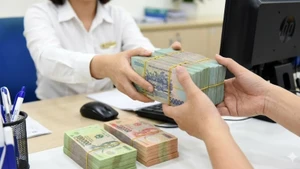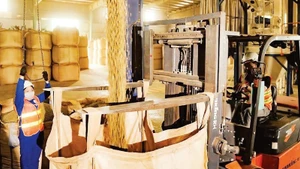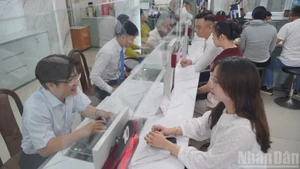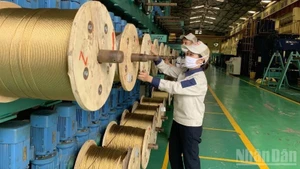Many banks have launched mortgage and property investment loan packages with appealing interest rates. Recently, to support the housing market, several banks rolled out home loan schemes offering ultra-low interest rates, ranging from just 3.99% to 5% per year, along with various special incentives. These packages target both investors and genuine homebuyers, making housing finance more accessible.
Exceptional offers for young homebuyers
The Bank for Investment and Development of Vietnam (BIDV) has introduced a 40 trillion VND credit package aimed at supporting young people in purchasing homes. Individual customers aged up to 35 who wish to purchase or lease-purchase property nationwide can access a fixed interest rate of 5.5% per year for the first three years.
Previously, An Binh Commercial Joint Stock Bank (ABBANK) launched a home loan package for individuals aged 19 to 40, featuring competitive terms. With rates starting at just 5% annually, borrowers can access up to 100% of the required capital, with flexible repayment periods of up to 35 years. The package is designed to ease initial financial burdens by offering monthly instalments aligned with borrowers’ incomes.
Several other banks have also introduced similar low-interest credit programs. For example: Loc Phat Commercial Joint Stock Bank (LPBank) is offering a 5 trillion VND loan package with an initial rate of 3.88% per year for the first three months, covering up to 100% of the loan amount. Ho Chi Minh City Development Bank (HDBank) has launched a 30 trillion VND scheme with repayment periods of up to 50 years, an initial interest rate of 4.5% for the first three months, and a grace period of up to five years on principal repayments.
Saigon–Hanoi Bank (SHB) is offering a 16 trillion VND package with a starting rate of 3.99% for the first three months, financing up to 90% of the property’s value. Meanwhile, Asia Commercial Bank (ACB) has introduced the “First Home” loan package, offering terms of up to 30 years with rates from 5.5% per year.
Potential risks to consider
While these low-interest packages are expected to improve access to housing for younger buyers, they are not without risks.
Experts caution that the low initial interest rates may cause borrowers to underestimate future repayment obligations. After the preferential period ends, rates may rise significantly depending on market conditions, potentially creating unexpected financial pressure. Careful financial planning is essential before committing to a home loan. Additionally, individuals with unstable incomes or limited collateral may struggle to qualify for these programmes, leaving many with genuine housing needs unable to access them.
Economic expert Dr Can Van Luc pointed out that loan procedures remain a major barrier. He suggests that banks adopt more flexible criteria to assess borrowers’ financial capacity, such as accepting bank statements or business receipts as proof of income. He also emphasised that interest rates are not the only challenge. Property prices remain beyond the reach of many young people, especially in major cities. “Without an adequate supply of affordable housing, lower interest rates alone won’t solve the problem,” he said.
Sharing a similar perspective, Dr Nguyen Quoc Hung, Vice Chairman and Secretary-General of the Vietnam Banks Association, noted that real estate developers have not taken sufficient measures to help individuals purchase homes at reasonable prices. On the contrary, housing prices continue to rise, pushing homeownership further out of reach for many. Dr Hung warned that injecting low-interest capital into the market could drive prices even higher. “We must not let cheap capital further inflate property prices,” he said.
State Bank of Vietnam (SBV) Governor Nguyen Thi Hong highlighted that, under the prime minister’s directive, SBV has encouraged nine banks to commit between 45 trillion VND and 55 trillion VND to housing loans for young buyers, with interest rates 1–3% lower than market rates for a period of up to 15 years. However, she also noted that most young people currently prefer renting over buying. As such, policies must be re-evaluated to better align with actual demand.
Additionally, a broader 145 trillion VND loan package is being offered with interest rates ranging from 6.1% to 6.6%, similar to those available for low-income households.
It is worth noting that total outstanding property loans have reached 3.48 quadrillion VND. Nevertheless, many real estate projects remain stalled, primarily due to unresolved legal procedures. Many developers have not completed the necessary paperwork, making banks reluctant to disburse loans. In turn, developers face difficulties meeting lending requirements to move forward with their projects.
To fully leverage these preferential credit programmes, relevant authorities must introduce adjustments to reduce financial risks, protect borrowers, and ensure the market develops sustainably. At the same time, borrowers must carefully evaluate their repayment capacity and develop clear financial plans to avoid unexpected difficulties in the future.
















